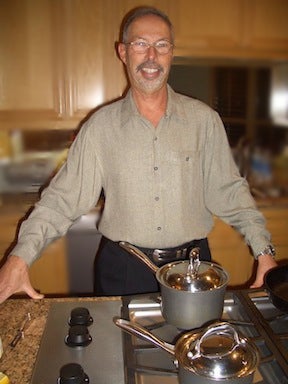Dean of Texas A&M University Baylor College of Dentistry in Dallas, continues a lifelong fascination with chemistry that has influenced both his professional and personal pursuits since his days as a University of California, Riverside student in the late 1960s.
After earning a bachelor’s degree in chemistry at UCR in 1970, Wolinsky completed a doctorate in synthetic organic chemistry from the University of California, San Diego, followed by a dental degree from Tufts University School of Dental Medicine in Boston and specialty education in periodontology at the University of California, Los Angeles.
He was among the first to explore the plaque-inhibiting effects of natural plant compounds and was instrumental in developing an antimicrobial gel, Atridox®, for managing periodontal disease.
“When I did a postdoc fellowship at Scripps Clinic in San Diego, I realized my real passion was in using science to advance health care,” Wolinsky says. “While working with cancer cells, I began to develop a close relationship with clinical problems and how chemistry could help develop technologies to alleviate disease.”
Wolinsky accepted a faculty position at UCLA after dental school, spending 31 years there and rising through the ranks to full professor and associate dean for academic programs and personnel prior to accepting the position as dental school dean in Dallas. He credits his experiences at UCR for their critical influence on his ultimate career path.
“I believe the fact that I have dedicated my life to educating others may have been due in part to some of the wonderful professors at UCR who served as mentors during those formative years,” Wolinsky says.
These days his science background leads as much to the kitchen as to the lab, much to the delight of family members and friends. In fact, Wolinsky’s son Zachary has published “Dad’s Home Cooking” by Summerland Publishing in recognition of his dad’s meticulously honed culinary skills.
“When my kids were growing up … I told them most of my interest in cooking came from my fascination with chemistry,” Wolinsky explains. “Being an organic chemist, I spent a lot of time working with molecules. Cooking has a lot of the same attributes as organic synthetic chemistry. You use a lot of the same processes … heating things, cooking, mixing them together. Out of these mixtures you get an amazing plethora of flavors and textures, depending on how you prepare the dish.”
